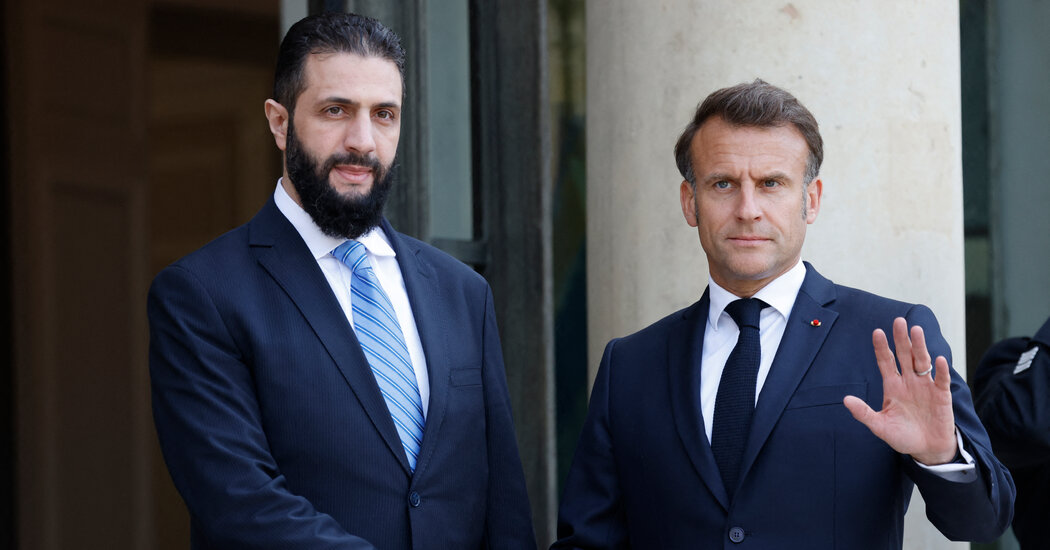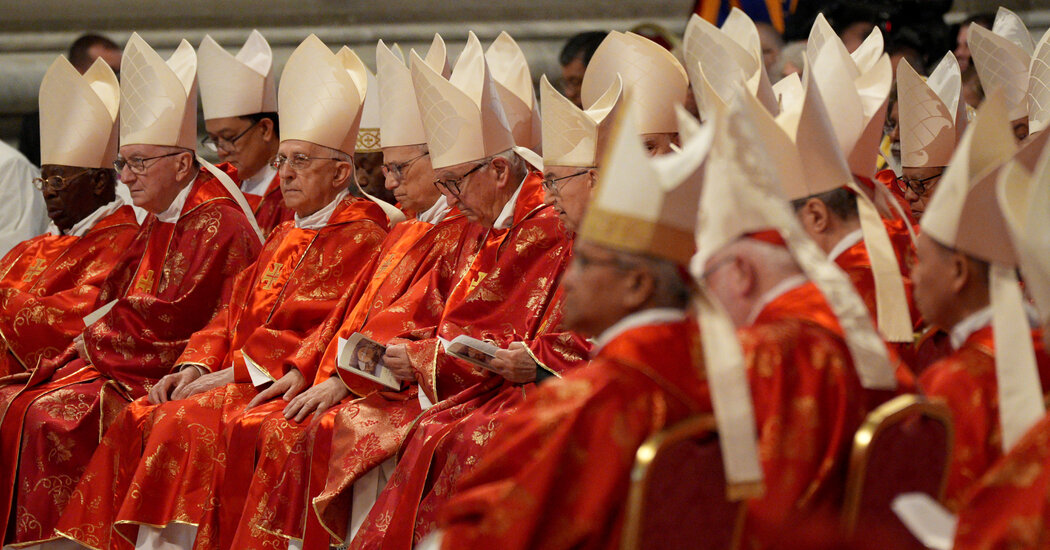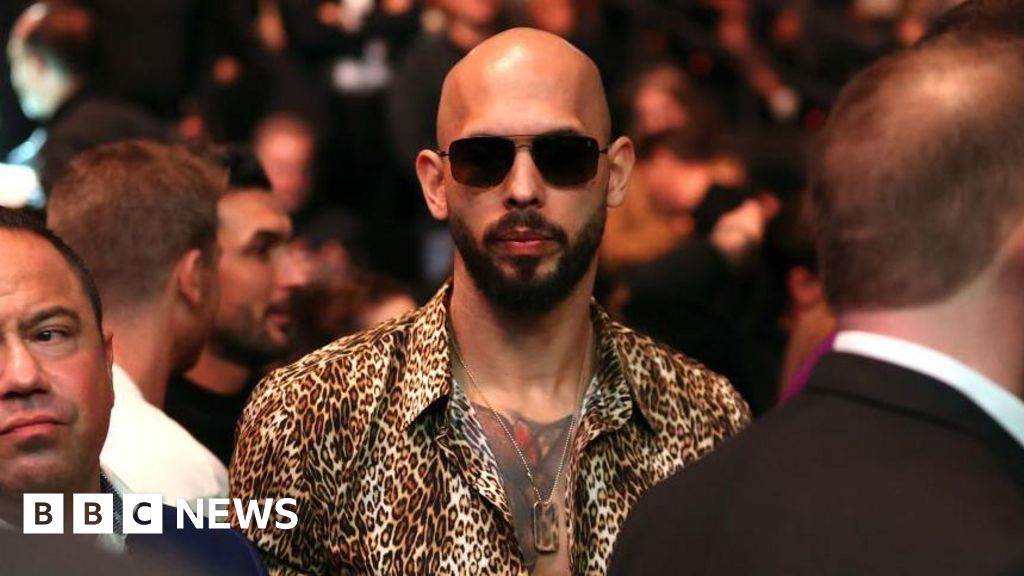[ad_1]
President Ahmed al-Shara of Syria said on Wednesday that Syria had held indirect talks with Israel to contain escalating tensions, days after Israeli jets struck the capital, Damascus, amid deepening sectarian violence inside the country.
“There are indirect talks through mediators to calm down the situation so that they don’t get out of control,” Mr. al-Shara said after a meeting in Paris with President Emmanuel Macron of France.
It was Mr. al-Shara’s first trip to a European country since ascending to power, marking a pivotal moment in the Syrian leader’s bid to reintegrate Syria into the international community.
But the news of indirect talks between Syria and Israel was a startling admission from the Syrian president, whose country has long had hostile relations with Israel. Mr. al-Shara did not say who the mediators in the indirect talks were, and the Israeli prime minister’s office declined to comment.
Reuters reported earlier on Wednesday that the United Arab Emirates had set up a back channel for talks between Israel and Syria, but Lana Nusseibeh, an official at the Emirati foreign ministry, denied those claims as “categorically false” in a statement.
Since Islamist rebels overthrew the dictator Bashar al-Assad in December, Israel has carried out hundreds of strikes inside Syria, the latest of which followed deadly clashes between pro-government forces and militias from Syria’s Druse minority, whom Israel has pledged to protect.
Mr. Macron criticized those Israeli strikes on Wednesday, saying, “You can’t ensure your country’s security by violating the territorial integrity of its neighbors.”
Mr. Macron also provided a diplomatic boost to Mr. al-Shara, stating that he would push to gradually lift European Union sanctions on Syria, provided that the country’s new leaders maintain their path toward stability. Mr. Macron also said he would press the Trump administration to consider a similar approach.
“I told the Syrian president that if he continued to follow his path, we would continue on ours,” Mr. Macron said after over two hours of talks at the Élysée Palace with Mr. al-Shara.
Mr. Macron’s warm welcome of Mr. al-Shara reflected a widening gap between many close American allies and the United States in their approach to the new Syrian authorities.
Saudi Arabia, Qatar, Turkey and France have all received Mr. al-Shara, and some have called for the lifting of penalties that are crippling for Syria’s economy. But the Trump administration has kept its distance, making sweeping demands that it says Mr. al-Shara must meet to allow for further engagement.
The landmark visit by Mr. al-Shara on Wednesday came at a time of deep uncertainty for Syria, which has been mired by spasms of sectarian violence as it tries to emerge from more than a decade of war. This has alarmed Western nations, which have made the lifting of longstanding economic sanctions contingent on a political transition that protects the rights and security of all Syrians.
Large-scale sectarian violence in March, when Syria’s coastal region was rocked by a killing spree targeting the country’s Alawite religious minority, starkly revealed Mr. al-Shara’s shaky grip on security.
Over a few days, more than 1,600 people — mostly Alawites — were killed amid a crackdown against Assad loyalists who had ambushed government security forces. Much of the bloodshed appeared to have been committed by Sunni Muslim extremists affiliated with the government but not formally integrated into a unified national military.
Mr. Macron said he had told Mr. al-Shara that the recent spate of sectarian killings in Syria were “unacceptable,” adding that Mr. al-Shara “must do everything to assure the protection of all Syrians without exception” and to hold accountable those responsible for the killings.
Some right-wing critics of Mr. Macron balked at welcoming the Syrian leader at the presidential palace because of the violence in Syria and his background as the leader of an Islamist rebel group once affiliated with Al Qaeda. Mr. al-Shara is still on a terrorism sanctions list and had to receive an exemption from the United Nations to travel. France has been deeply scarred by a string of Islamist terrorist attacks over the past decade.
But Mr. Macron and other French officials have argued in favor of engaging with Mr. al-Shara to help him manage Syria’s post-Assad transition. They say that there are no realistic alternatives and point to positive steps taken by Syrian authorities in recent months, including progress on a deal that France helped mediate between the authorities and the Kurds who control Syria’s northeast, and cooperation on getting rid of the country’s remaining chemical weapons.
Mr. Macron said he would lobby France’s allies to let E.U. sanctions lapse at a meeting in June. The bloc had already started easing some sanctions, including measures targeting Syria’s oil, gas, electricity and transportation industries.
He also said he would try to convince the Trump administration to delay the withdrawal of U.S. forces that are leading counterterrorism operations in Syria.
“If results and acts do not follow words, we can re-evaluate,” Mr. Macron said, noting that much remained to be done to build a fully inclusive and democratic Syria.
Ben Hubbard contributed reporting from Istanbul, and Patrick Kingsley from Jerusalem.
[ad_2]
Source link



